INSIDE ISSUE 18.38 | SEPT. 20, 2019
 BIG STORY: Group works to eliminate medical debt in S.C.
BIG STORY: Group works to eliminate medical debt in S.C.
NEWS BRIEFS: Climate change events, Green Tie lawmakers, more
COMMENTARY, Brack: Charleston’s past reveals a lot of firsts
SPOTLIGHT: The Felkel Group
MY TURN, Knapp: August’s job numbers offer warning signs
FEEDBACK: On GOP’s lack of presidential primary, Herbkersman, climate
MYSTERY PHOTO: Relic of the past
S.C. ENCYCLOPEDIA: Carolina, the ship
Group works to eliminate medical debt in S.C.

By Lindsay Street, Statehouse correspondent | More than one in three South Carolinians have past-due medical bills, according to the Urban Institute. While state lawmakers mull a bill that could provide some relief — with some still unclear on a path forward — a national nonprofit is seeking S.C. donors to help alleviate the crushing load for the Palmetto State’s poorest residents.

“That’s our responsibility as believers to administer God’s love to the less fortunate,” Tom Ervin of Greenville told Statehouse Report. Ervin, who represents the Upstate on the state’s utility regulatory commission, and his wife Kathryn Williams recently donated $15,000 to RIP Medical Debt. The money purchased more than $1.5 million in medical debt in the Upstate for more than 1,000 people.
How is that possible? The national nonprofit purchases overdue debt directly from collectors and hospitals for pennies on the dollar — debts are often sold at steep discounts to investors and collectors — and works directly with the credit reporting agency Transunion to identify those most in need.
So far, RIP Medical Debt has helped eliminate nearly $4 million in medical debt in South Carolina. Since the nonprofit’s 2014 founding, it is poised to reach $900 million in debt relief this month, a founder said.
RIP Medical Debt has identified about $16.8 million in medical debt remaining among those South Carolinians earning less than twice the federal poverty level (roughly less than $50,000 a year for a family of four) or those whose hardship is a significant portion of their yearly income.
According to an Urban Institute report, South Carolina is among the five worst states for prevalence of medical debt with 32.4 percent of nonelderly adults reporting past-due medical debt. Many of those adults have insurance coverage. Medical bills are the largest drivers of bankruptcy and debt in South Carolina, according to the report.
Soon, those benefiting from the Ervin-Williams donation will receive a yellow envelope. Inside, they will find out that the debt that they were likely unable to repay has been paid in full and cleared from their credit history.
“Every single one of them never in their lifetime could they have paid that bill off and they shouldn’t have been billed to begin with,” RIP Director of Education and Outreach Jerry Ashton of New York City told Statehouse Report. Ashton is a former medical debt collector, one of two to found the nonprofit.
Ervin and Williams are both attorneys who, Ervin said, have witnessed “the impact of excessive medical debt.” They saw a recent, national story on RIP Medical Debt, and they wanted to bring relief to their neighbors.
“It’s sad to see how many people are struggling in our country even though the economy is doing good. A lot of people are living paycheck to paycheck,” said Ervin, a member of the S.C. Public Service Commission. That many people suffering from medical debt with health insurance, he said, shows “how broken our system is.”
Ervin and Williams said they hope their donation will create a cascade of efforts in the Lowcountry and Midlands to help clear the state’s medical debt load.
Abolishing debt effort in. SC.
There are several campaigns active via RIP Medical Debt that are ongoing in South Carolina. Ervin said the campaign he is pushing will focus on Lowcountry donors in the next 30 days, then move on to campaigning in the Midlands.
“Our hope is that we will have the entire state caught up on unpaid medical debt,” Ervin said.
 Another campaign is being run by direct primary care doctors in North Carolina and South Carolina, according to RIP Development Associate Leo Fines. It seeks to eliminate $2 million in medical debt in both states. A separate campaign, which begins in October, is being run by health care policy analyst Jordan Roberts of the John Locke Foundation.
Another campaign is being run by direct primary care doctors in North Carolina and South Carolina, according to RIP Development Associate Leo Fines. It seeks to eliminate $2 million in medical debt in both states. A separate campaign, which begins in October, is being run by health care policy analyst Jordan Roberts of the John Locke Foundation.
- For more information ongoing South Carolina campaigns, visit the nonprofit’s website, ripmedicaldebt.org.
But even if all of South Carolina’s current medical debt was abolished overnight, it will slowly tick back up into the millions if the root problems aren’t addressed, Ashton said.
“It’s about making laws and regulations that are more humane as opposed to profit-centered,” he said.
Seizure issue may be first tackled
Though lawmakers know medical debt is an issue, there is only one bill filed for the 2019-2020 session that could potentially help.

S.C. House Bill 3117 was filed by Bluffton Republican Rep. Bill Herbkersman earlier this year. The bill is not specific to medical debt, but it would curb a state law that allows hospitals to seize tax returns through the S.C. Department of Revenue.
In 2017, health organizations in South Carolina made more than 172,000 seizures of at least $92.9 million to pay off past-due medical bills, according to a review by The Post and Courier. The law allowing those seizures was intended to allow municipalities and other local governments to seize tax returns for unpaid fees. But it also allows semi-public health centers to do the same for medical services.
Herbkersman said that while his bill isn’t necessarily focused on medical debt, “it’s a good conversation to have.”
Orangeburg Democratic Sen. Brad Hutto is working with advocates in the state on the issue of medical debt, but nothing has been drafted as of yet, he said. S.C. House Medical, Military, Public and Municipal Affairs Committee Chairman Leon Howard called the issue of medical debt “a big one.”
“I’m still giving a lot of thought over how we are going to get our arms around that,” he said this week. “We got to do something because it’s unbearable.”
The Urban Institute identified the following recommendations for lawmakers:
- Expand access to health insurance coverage. South Carolina is one of 14 states that has not expanded Medicaid access, which has been linked to hundreds of deaths in the state.
- Offer protections from “surprise” medical bills, which arise when an insured person inadvertently receives care from an out-of-network provider. South Carolina is one of 25 states that does not offer protections from such expenses. There is a bill in front of the U.S. Senate, S. 1531, that seeks to curb surprise medical bills.
- Have a comment? Send to: feedback@statehousereport.com
NEWS BRIEFS
Climate change events, Green Tie lawmakers, more

By Lindsay Street, Statehouse correspondent | The world — and even South Carolina — will be talking about climate change beginning today (Sept. 20) with world Climate Strike day.
Strike events coincide with the United Nations’ climate summit in New York City next week. Here is a short list of S.C. events:
Vigil for a Livable Climate: 5:30 p.m. Sept. 20 at the Statehouse steps in Columbia.
Lecture: 21st Century Cannibalism: 5 p.m. Sept. 21 at Addlestone Library in Charleston.
Lecture: The Good and Bad News on the Looming Crisis: 5 p.m. Sept. 22 at Gage Hall in Charleston.
The 2019 John Winthrop Civic Forum: 6 p.m. Sept. 23 at Rita Hollings Science Center at the College of Charleston in Charleston.
How to Get Active in Climate Crisis: 6 p.m. Sept. 24 at Baker & Brewer in Charleston.
Lecture: The Unequal Consequences of Climate Change: 7 p.m. Sept. 25 at Robert Scott Small Building at the College of Charleston in Charleston.
The Dutch Dialogues Report: 7 p.m. Sept. 26 at Charleston Gaillard Center in Charleston.
In other S.C. news:
![]() State mourns the loss of Emily Clyburn. Emily Clyburn died in Columbia Thursday morning. She was the wife of House Majority Whip Jim Clyburn, the South Carolina Democrat for whom she was often seen as his driving force. The couple met after they were arrested for participating in a civil rights demonstration as students at S.C. State College in 1960. Married for 58 years, they recently donated $1.7 million in endowed funds earlier this year to their alma mater S.C. State University.
State mourns the loss of Emily Clyburn. Emily Clyburn died in Columbia Thursday morning. She was the wife of House Majority Whip Jim Clyburn, the South Carolina Democrat for whom she was often seen as his driving force. The couple met after they were arrested for participating in a civil rights demonstration as students at S.C. State College in 1960. Married for 58 years, they recently donated $1.7 million in endowed funds earlier this year to their alma mater S.C. State University.
Green Tie honorees include three lawmakers. The Conservation Voters of South Carolina held an awards luncheon this week to honor “public servants and conservation advocates for their dedication to protecting the South Carolina we love.” Three lawmakers each won the group’s Green Tie award: S.C. Rep. Nathan Ballentine, R-Richland; S.C. Rep. Mandy Powers Norrell, D-Lancaster; and S.C. Sen. John Matthews, D-Orangeburg. Other honorees included Peg Howell of Pawleys Island and Dr. J. William F. Holliday of Horry County.
7.7 tons. An update on Bahamian relief efforts by S.C. Rep. Bill Herbkersman, R-Bluffton: As of Thursday, he had flown in about 15,400 pounds of relief supplies to Treasure Cay in the Abacos since Hurricane Dorian smashed into the island. He also reports that there was a bad case of pinkeye throughout the residents and that a box of antibiotic eye drops sent by MUSC was a gift from heaven.
“The big ships and big planes are in there now. I’m off for a couple of weeks. At every turn, someone was assisting. We have incredible people in this country, for sure.” Thanks also to Herbkersman for a shoutout in a recent column in Bluffton Today: “I also want to thank my pal Andy Brack, who publishes and edits the Statehouse Report. He has another publication, Charleston Currents, that did a small article on my relief effort. Apparently, it found its way onto social media, where it proliferated like kudzu. Many of my constituent contacts were attributable to Andy’s article. It also produced a bump in contributions to Mercy Flight, Red Cross and the Salvation Army. I am grateful.”
2020 candidate calendar
 Throughout the campaign season, we are working to keep South Carolina informed of candidate events in the state. Have an event you want us to know about? Email us at 2020news@statehousereport.com.
Throughout the campaign season, we are working to keep South Carolina informed of candidate events in the state. Have an event you want us to know about? Email us at 2020news@statehousereport.com.
Harris plans two stops in S.C. California Sen. Kamala Harris will be the keynote speaker at the Charleston NAACP Freedom Fund Dinner 6:45 p.m. Sept. 21 at the Gaillard Center in Charleston. She will attend a church Service at Royal Missionary Baptist Church 11 a.m. Sept. 22 in North Charleston.
Blue Jamboree. Thousands are expected to attend the all-day Oct. 5 Blue Jamboree held by the Charleston County Democratic Party at The Bend, 3775 Azalea Drive, in North Charleston. Sponsors of the event include these presidential candidates: Joe Biden, Pete Buttigieg, Tulsi Gabbard and Bernie Sanders, as well as Kamala Harris, Elizabeth Warren, Tom Steyer, Cory Booker, Andrew Yang, Michael Bennet and Julian Castro. Tickets are $20.
- Have a comment? Send to: feedback@statehousereport.com
BRACK: Charleston’s past reveals a lot of firsts
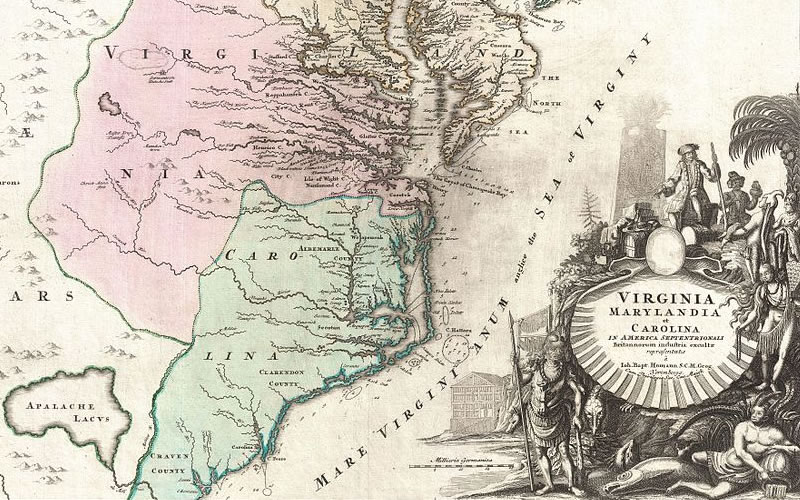
By Andy Brack, editor and publisher | Charleston will have a series of big parties next year as the Holy City celebrates the 350th anniversary of its founding.
 In 1670, English settlers first set up on Albemarle Point along the Ashley River, only to move 10 years later to the peninsula for better health and safety. They built a palisade wall around the settlement to become the only English walled city in what would become the United States, according to historians Jack Bass and Scott Poole.
In 1670, English settlers first set up on Albemarle Point along the Ashley River, only to move 10 years later to the peninsula for better health and safety. They built a palisade wall around the settlement to become the only English walled city in what would become the United States, according to historians Jack Bass and Scott Poole.
You probably know more “Charleston firsts” than you realize. You surely know how patriots won the first decisive battle of the American Revolution on June 28, 1776, with a victory over British land and sea forces on Sullivan’s Island. The victory, which we celebrate annually as Carolina Day, incentivised founding fathers to sign the Declaration of Independence the following month.
You probably know about how the H.S. Hunley was the first submarine to succeed in sinking an enemy ship, the Union warship Housatonic, during the Civil War. The sub, which sank soon thereafter, was discovered in Charleston harbor in 1995 and recovered five years later. It is on display in a North Charleston research facility.
And you may know The Best Friend of Charleston was a steam-powered locomotive that started the nation’s first passenger rail service in 1830. You might not know, however, that it also was the first locomotive to experience a deadly boiler explosion just six months later.
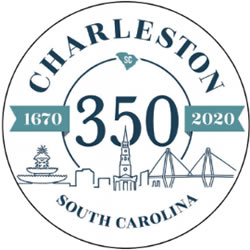 Charleston is home to the nation’s first museum (Charleston Museum); first opera performance (1735); first theater (Dock Street Theatre, 1735); oldest municipal college (College of Charleston, founded 1770); and the nation’s first Chamber of Commerce, which was organized in 1773. And, of course, the first shots of the Civil War happened near Charleston.
Charleston is home to the nation’s first museum (Charleston Museum); first opera performance (1735); first theater (Dock Street Theatre, 1735); oldest municipal college (College of Charleston, founded 1770); and the nation’s first Chamber of Commerce, which was organized in 1773. And, of course, the first shots of the Civil War happened near Charleston.
Some less widely-known Charleston firsts:
Zoning. Charleston established the nation’s first historic zoning ordinance, which is a big reason why all of the pretty houses remain and attract millions of visitors every year. Tourism’s economic impact to Charleston is $8.13 billion, according to Explore Charleston.
Reform Judaism. Kahal Kadosh Beth Elohim, the second oldest synagogue in the United States, is widely recognized as the birthplace of Reform Judaism. Founded in 1749 by Jews attracted to Charleston for its civil and religious liberties, members built a nationally impressive Georgian home of worship by 1794. Thirty years later, the synagogue’s 47 trustees sought to change the temple’s liturgy to include English translation of prayers, but were denied. They resigned from the congregation and organized “The Reformed Society of Israelites,” whose practices and principles are a big part of today’s Reform Judaism. The congregation’s Georgian worship home burned in 1838, only to be replaced two years later with a building described as “one of the country’s finest examples of Greek Revival architecture.”
Golf. Charleston is considered the birthplace of golf in North America after the formation of the South Carolina Golf Club in 1788. Members reportedly played on a bustling rectangle of land that stretched between what we know as Charleston and Beaufain streets and bounded by Rutledge and Barre streets. The area, called Harleston Green, seemed to disappear from historical records as a golf course around 1800. But that makes sense: Around that time, homes started being built in the area. Interesting tidbit: Some 432 golf balls and 96 clubs arrived in Charleston from England in 1743 as the first known shipment of golf equipment into the colonies.
Finally, we’ll leave you with this one: According to old-time wags and natives who see Charleston as the epicenter of the world, the Atlantic Ocean actually starts in Charleston harbor at the confluence of the Ashley and Cooper rivers. The late U.S. Sen. Fritz Hollings, born in the Holy City in 1922, once told me in his thick Lowcountry accent, “Every great city has a great river. London has the Thames. New York has the Hudson. Washington has the Potomac. And Charleston, Andrew, Charleston has two great rivers — the Ashley and Cooper — and that’s where the Atlantic Ocean starts.”
Charleston’s Founders’ Day Kick-off is set for April 18 at Charles Towne Landing State Park. There will be a summer concert on July 3 and a Community Unity Celebration on Nov. 8, 2020, which we’ll probably need if the 2020 election gets nastier.
Andy Brack’s latest book, “We Can Do Better, South Carolina,” is now available in paperback and for Kindle via Amazon.
- Have a comment? Send to: feedback@statehousereport.com.
The Felkel Group
 The public spiritedness of our underwriters allows us to bring Statehouse Report to you at no cost. This week in the underwriter spotlight is The Felkel Group, a battle-tested public affairs and business development firm that assists corporations, associations and not-for-profits that are serious about their long-term success. The Felkel Group solves problems, crafts and delivers messages, helps organizations to manage crisis, and uses a wealth and breadth of valuable relationships to help seal deals.
The public spiritedness of our underwriters allows us to bring Statehouse Report to you at no cost. This week in the underwriter spotlight is The Felkel Group, a battle-tested public affairs and business development firm that assists corporations, associations and not-for-profits that are serious about their long-term success. The Felkel Group solves problems, crafts and delivers messages, helps organizations to manage crisis, and uses a wealth and breadth of valuable relationships to help seal deals.
The Felkel Group is also home to an outstanding advocacy tool called The Rap Index, a powerful intelligence tool that employs sophisticated computer modeling and profiling techniques to help organizations find their most effective advocates.
- To learn more about The Felkel Group and its Rap Index, go to: http://www.felkelgroup.com.
August’s job numbers offer warning signs

By Frank Knapp, special to Statehouse Report | Like the rest of the nation, South Carolina’s economy seems to be humming along.
But there are warning signs and growing concern that we are heading to a recession.

The Labor Department released its monthly jobs report last week. It showed that 130,000 new jobs were created in August. However, around 25,000 were temporary census workers hired by the federal government. That puts the August total for new private-sector jobs at about 100,000.
For his part President Trump is furious at the “fake news” for pointing out that the Labor Department numbers were well below economist expectations.
Maybe August is just a “quirky month.” That is how Larry Kudlow, President Trump’s National Economic Council Director, described it.
So was August a good month for new jobs or not?
There is no question that the economy both in our state and across the country continues to add new jobs each month. It’s been doing that without a break since October of 2010 following the Great Recession.
There is also no question that the monthly new jobs rate nationally in 2019 (143,000) is considerably less than in 2018 (192,000) according to the Labor Department.
We also know that the manufacturing sector, while adding a few thousand jobs over the last couple of months, has shrunk the last two quarters meeting the criteria for being in a recession.
This would be consistent with the ADP August data which showed that very small businesses (less than 20 employees) nationally shed 1000 jobs in the goods-producing sector.
The good news, according to ADP, is that these very small businesses added 26,000 jobs overall in August, turning around three consecutive months of job losses totaling 105,000.
Does this mean that these very small businesses are healthy again and that all my hand-wringing over the May–June–July ADP jobs reports was not warranted?
I don’t believe so.
The evidence is clear that the economy is not what it has been and consumers are feeling it.
The University of Michigan’s consumer sentiment survey found a sharp decline in consumer confidence in August.
A Quinnipiac University poll taken at the end of August also found public sentiment shifting negatively on the economy. “For the first time since President Trump was elected, more voters say that the national economy is getting worse than getting better, with 37 percent saying it is getting worse, 31 percent saying it is getting better, and 30 percent saying it is staying the same.”
The significance of these two polls cannot be overstated. If consumer spending which makes up 70 percent of the economy starts to decline, small businesses will feel it first.
Americans might have jobs, but many also have financial problems.
Families today are deeper into debt because of student loans, medical bills, housing and transportation.
The average American family did not get the $4000 raise in income promised by the 2017 tax law. In fact, the American taxpayer paid $93 billion more in 2018 federal taxes than the year before.
Small business owners also did not benefit from the 2017 tax law. A national poll by Businesses for Responsible Tax Reform found that 72 percent of small business owners say that the 2017 tax law had either no positive effect on their business or a negative effect.
Small businesses have already been feeling the consumer angst about the economy and their finances. The resulting decline in consumer spending on Main Street is what the loss of jobs for three of the past four months by very small businesses reflects.
We will have to wait to see if the September jobs report for these very small businesses continues the good news of August.
Or we’ll find that Mr. Kudlow was correct. August was a “quirky month” and a slumping economy is in our future.
Frank Knapp is the co-chair of Businesses for Responsible Tax Reform and president/CEO of the South Carolina Small Business Chamber of Commerce.
- Have a comment? Send to: feedback@statehousereport.com.
No surprise about GOP’s failure to hold presidential primary
To the editor:
![]() It is not a surprise that the Republican Party would choose not to have a presidential primary in light of challenges to Donald Trump. This is a party that, when feeling threatened, has no compunction about cheating. We need look no farther than gerrymandering and state and national efforts at voter suppression to understand that the Republican Party will do whatever it takes to assure that they will not only win, but will have no challenges to their power.
It is not a surprise that the Republican Party would choose not to have a presidential primary in light of challenges to Donald Trump. This is a party that, when feeling threatened, has no compunction about cheating. We need look no farther than gerrymandering and state and national efforts at voter suppression to understand that the Republican Party will do whatever it takes to assure that they will not only win, but will have no challenges to their power.
It is too bad that our Republican elected officials are not willing to take a stronger stand for this important expression of democracy.
— Agnes Pomata, Wadmalaw Island, S.C.
2020 election is super-important
To the editor:
Electing our President is arguably the most important election in our country every four years. The GOP is choosing to gag their own voters. What happened to the democratic process? Doesn’t every Republican voter deserve to be heard?
— Ellen Harley, Charleston, S.C. [Harley is a former GOP Pennsylvania legislator.]
Herbkersman story warmed his heart
To the editor:
Over the years and over 13,000 hours of flight time, I have taught hundreds of students to fly. Your story of the kind heart and efforts to supply the Bahamas by S.C. Rep. Bill Herbkersman warmed my heart. Why? I taught him to fly back in the mid-1990s. Then he hired my sister to work at one of his businesses in Hilton Head.
He is hereby my most important and accomplished student…..he used his flight training for charity, not just to make money. Bill is no moderate as you mention! He is a fellow conservative Republican with a kind heart for his fellow man. Sounds like a great replacement for Governor McMaster when he terms out of office. Governor Herbkersman!
— Will Bradley, Las Vegas, Nevada
Climate change denier speaks out
To the editor:
I guess that I fall into the category you call a “denier of basic scientific facts” in having doubts about imminent danger of global warming. Your source, Eddy Moore of the Coastal Conservation League in Charleston, is probably one of those who predict imminent catastrophe unless we abandon fossil fuels soon, and adopt various solar, green and wind alternatives.
Are you folks aware of what situations exist in China and India, and what their future plans are? Briefly, both nations now operate multi-hundreds of coal power plants, and intend to add hundreds more in the future. What this means globally is that our puny efforts will not reverse whatever negative effects might exist from fossil fuel use, as our minor good behavior will be a “drop in the bucket” overwhelmed by the Asians.
What confounds me is the utter failure of major U.S. corporations to build nuclear power plants on schedule. Nuclear is the answer, if only we can get competent, honest contractors.
— Bruce Tennant, Greenwood, S.C.
Send us your thoughts … or rants
We love hearing from our readers and encourage you to share your opinions. But you’ve got to provide us with contact information so we can verify your letters. Letters to the editor are published weekly. We reserve the right to edit for length and clarity. Comments are limited to 250 words or less. Please include your name and contact information.
-
- Send your letters or comments to: feedback@statehousereport.com
Relic of the past
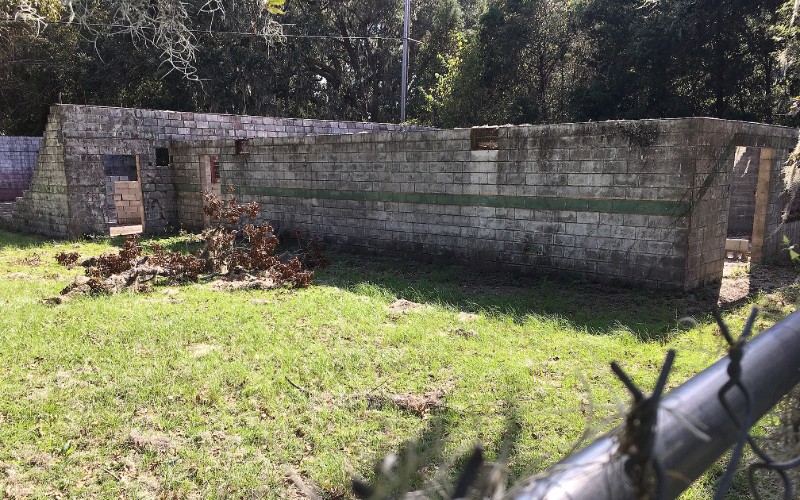
Here’s a deteriorating building that may have historic importance. Where is it and what’s its story? Send your guess about the location of this photo to feedback@statehousereport.com. And don’t forget to include your name and the town in which you live.
Our previous Mystery Photo
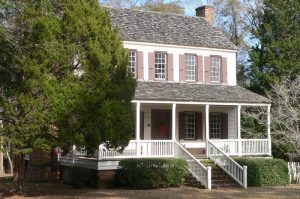 Our Sept.13 mystery, “Old house with brown shutters,” showed the Thorntree House in Kingstree, S.C. The house, dating to the mid 18th century also is known as the Witherspoon House.
Our Sept.13 mystery, “Old house with brown shutters,” showed the Thorntree House in Kingstree, S.C. The house, dating to the mid 18th century also is known as the Witherspoon House.
Hats off to these mystery photo detectives who knew the answer: George Graf of Palmyra, Va.; Ross Lenhart of Pawleys Island; Philip Cromer of Beaufort; Frank Bouknight of Summerville; Dave Taylor of Darlington; and Don Clark of Hartsville.
Lenhart shared that the house is the oldest surviving residence in the Pee Dee and is open to the public. Cromer said the house, which is on the National Register of Historic Places, was moved from its plantation site to its current location in a memorial park.
For more context, Graf provided this information according to findagrave.com: “John Witherspoon was the third child of John and Janet/Jennett Witherspoon to live to adulthood and arrived from Northern Ireland with family into Charleston, South Carolina in 1734. After his marriage in Northern Ireland, he lived about nine years in the Parish of Graba near Canningburn Mills. They then came with family to the USA and lived at the Bluff near Kingstree until 1749; and then they moved to a 300 acre place situated between the Lower Bridge on Black River and Murray’s Ferry on the Santee and built a two-story home (Thorntree) which still stands renovated as a historic entity in Kingstree, S. C.”
- Send us a mystery: If you have a photo that you believe will stump readers, send it along (but make sure to tell us what it is because it may stump us too!) Send to: feedback@statehousereport.com and mark it as a photo submission. Thanks.
S.C. ENCYCLOPEDIA
HISTORY: Carolina, the ship
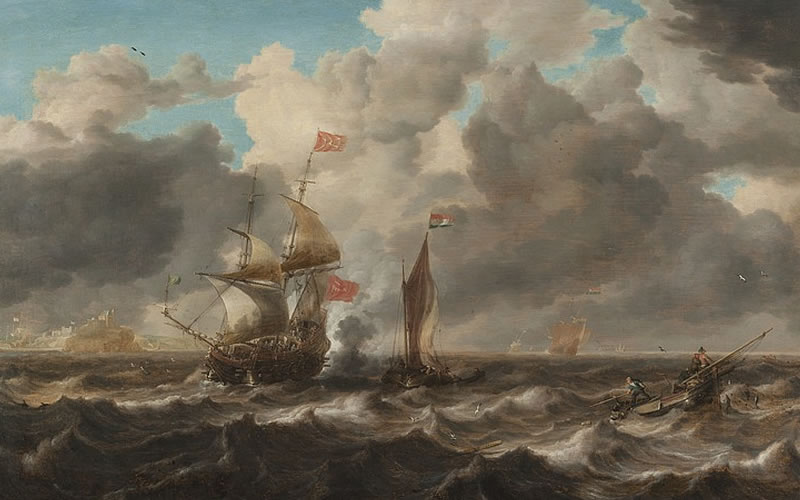
S.C. Encyclopedia | In 1663 King Charles II of England rewarded eight of his supporters with a grant for a large tract of land in North America. Lying between thirty-one and thirty-six degrees of latitude, the Province of Carolina stretched from the Atlantic to the Pacific Ocean.
In August 1669 the Lords Proprietors’ fleet—the Carolina, the Port Royal, and the Albemarle—carrying the first settlers for Carolina was ready to sail. The fleet was commanded by Joseph West, who was later appointed governor of the colony. The Carolina, the largest of the three ships, was a two-hundred-ton frigate that carried ninety-three passengers. A typical frigate of the era was a three-masted vessel that was smaller and faster than many ships of the age.
En route to Barbados, the fleet landed in Ireland, where several colonists left the expedition. After forty days the ships reached Barbados, where a storm destroyed the Albemarle. After acquiring the sloop The Three Brothers, the fleet sailed to Nevis. Abandoning the Port Royal there, the Carolina and The Three Brothers continued to Bermuda. A storm drove The Three Brothers toward Virginia. Undeterred, the expedition acquired another sloop in Bermuda and eventually reached South Carolina in April 1670. Settlers on the Carolina first explored Port Royal, their intended settlement site, but chose instead to settle up the Ashley River. In May 1670 the settlers sent the Carolina to Virginia for supplies and to Barbados for sixty-four additional settlers. Of the three ships that left England to found the new colony, only the Carolina had successfully reached what would become South Carolina.
— Excerpted from an entry by Alexis Jones Helsley. This entry may not have been updated since 2006. To read more about this or 2,000 other entries about South Carolina, check out The South Carolina Encyclopedia, published in 2006 by USC Press. (Information used by permission.)
ABOUT STATEHOUSE REPORT
Statehouse Report, founded in 2001 as a weekly legislative forecast that informs readers about what is going to happen in South Carolina politics and policy, is provided to you at no charge every Friday.
Meet our team
- Editor and publisher: Andy Brack, 843.670.3996
- Statehouse correspondent: Lindsay Street
Buy the book
Now you can get a copy of editor and publisher Andy Brack’s We Can Do Better, South Carolina! ($14.99) as a paperback or as a Kindle book ($7.99). . The book of essays offers incisive commentaries by editor and publisher Andy Brack on the American South, the common good, vexing problems for the Palmetto State and interesting South Carolina leaders.
More
- Mailing address: Send inquiries by mail to: P.O. Box 22261, Charleston, SC 29407
- Subscriptions are free: Click to subscribe.
- We hope you’ll keep receiving the great news and information from Statehouse Report, but if you need to unsubscribe, go to the bottom of the weekly email issue and follow the instructions.
- © 2019, Statehouse Report. All rights reserved.
















 We Can Do Better, South Carolina!
We Can Do Better, South Carolina!